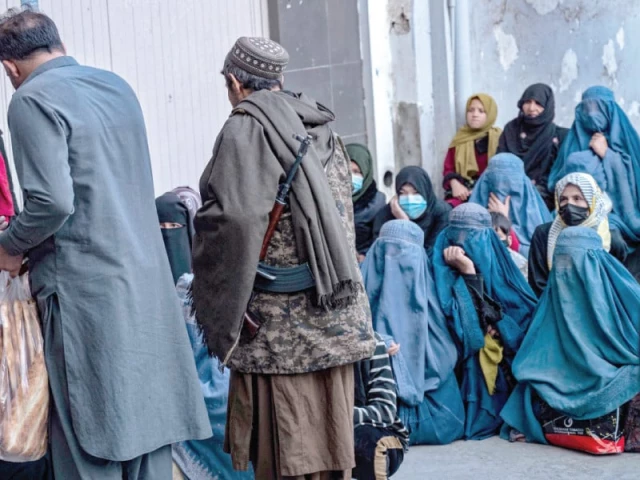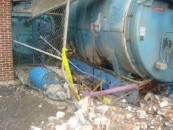Afghan businesses winding down in Pindi
Shopkeepers sell off goods, close stores & disappear

Following the lapse of the deadline set by the government for repatriation of Afghan nationals back to their home country, businesses owned by Afghans in the commercial centres of the city and cantonment areas have started to wind down.
Afghan shopkeepers have begun selling off goods in their shops, locking up their stores, and disappearing. Various types of vehicles and heavy machinery previously used by Afghan nationals are also being sold.
Shops owned by Afghans in areas like Saddar Adam Ji Road, Tench Bhata, Jamia Masjid Road, and other locations are either closed or have been sold off.
Details reveal that in various areas of Rawalpindi, including Pirwadhai, the Military Colony, Bangash Colony, and Sadiqabad, as well as in the cantonment area of Tench Bhata and nearby regions where a majority of Afghan nationals used to reside, their numbers have significantly reduced. Many Afghan families have already left, while others have suddenly moved to different locations.
In the business centres of the city and cantonment, Afghan-owned shops dealing in shoes, clothing, imported utensils, and other items are either closed or are now under new ownership.
New owners claim that the Afghan nationals handed over their shops, where they were tenants, along with their goods. Several well-known Afghan hotels in the city and cantonment are no longer in operation, with their signs also changed.
Sources indicate that a large majority of Afghan nationals living in Rawalpindi and Islamabad have already left, and those who were not detained by law enforcement agencies left voluntarily.
These individuals have travelled to Afghanistan via Khyber-Pakhtunkhwa province before the given deadline.
Pakistan had set a March 31 deadline for all illegal residents, including Afghan Citizen Card (ACC) holder, to voluntarily return to their home countries. This policy of expelling illegal immigrants is part of Pakistan's broader security efforts in response to growing terrorist attacks, which Islamabad attributes to groups operating from Afghan soil.
The repatriation affects a large number of Afghans who have lived in Pakistan for decades, including many born in the country who have never lived in Afghanistan. Peshawar hosts the largest population of Afghan nationals, many of whom run businesses and work in the city.
In 2023, a deadline for unregistered foreigners led to the return of many Afghan nationals, and similar voluntary return camps have been set up for those returning now.
Earlier this month, the Taliban urged Pakistan and Iran to implement a structured and gradual repatriation process for Afghan refugees, emphasising the need to avoid forced deportations and acknowledging the challenges faced by returnees in Afghanistan.

























COMMENTS
Comments are moderated and generally will be posted if they are on-topic and not abusive.
For more information, please see our Comments FAQ